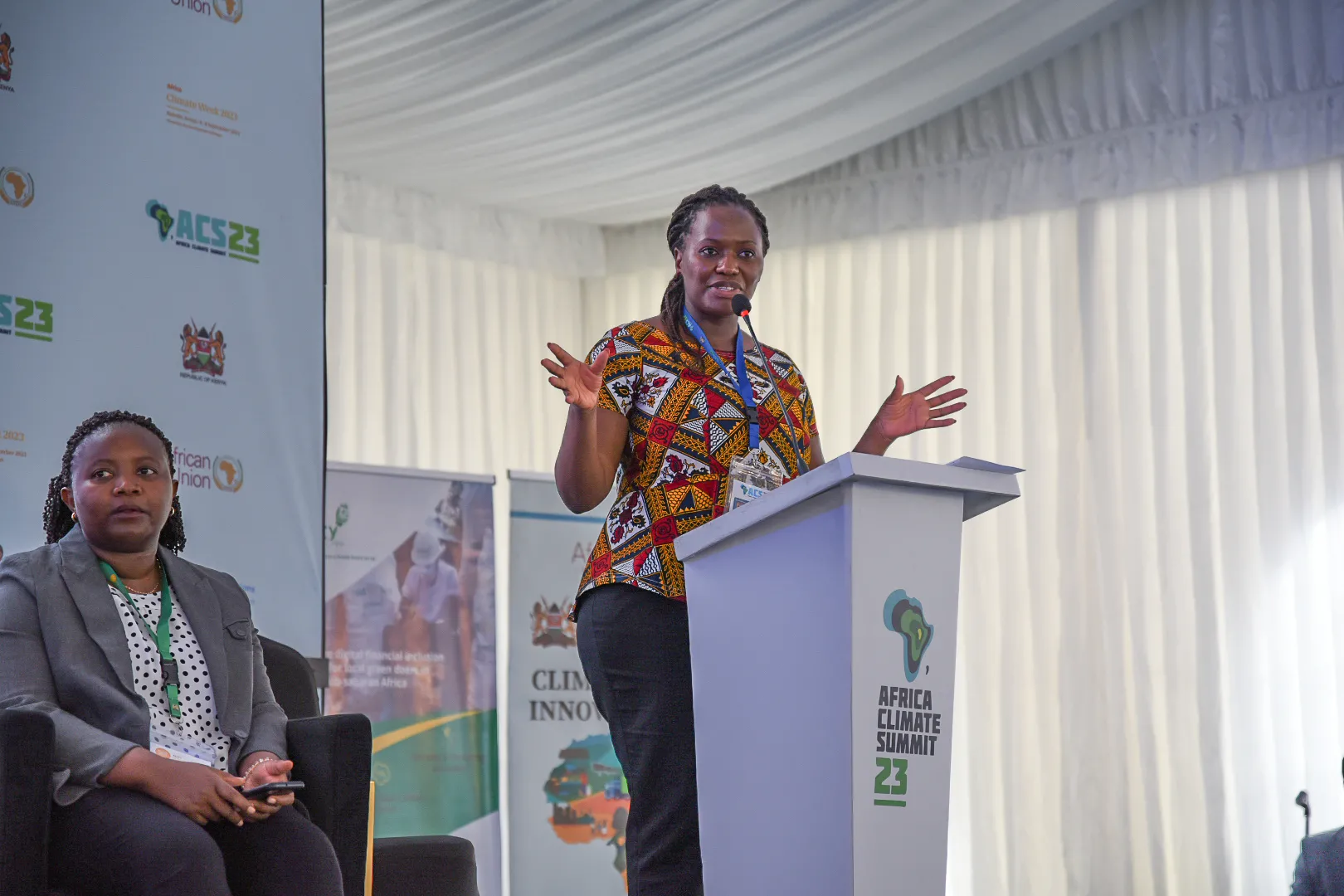As climate change continues to wreak havoc globally, Africa has been on the receiving end and millions of people continue to be plagued by climate-induced catastrophes. With Africa being home to 17% of the world’s population and emitting less than 4% of emissions, the continent is disproportionately affected. In East, Central, and Southern Africa, lives have been lost, livelihoods destroyed, and millions displaced as the climate crisis exacerbates hunger. With projections indicating that more than 100 million people will cross into poverty by 2030, the Climate crisis is an issue that needs to be addressed urgently.
To highlight these issues with the aim of learning and finding lasting solutions for the continent, the Africa Climate Summit was held in Nairobi on 4th- 6th September 2023 in parallel with Africa Climate Week. Under the theme of Driving Green Growth & Climate Finance Solutions For Africa And The World, the Africa Climate Summit brought together Heads of state, thought leaders, industry experts, climate specialists, government officials, and grassroots and non-governmental organizations to share experiences and solutions for a sustainable, resilient Africa and champion for a positive, climate compatible vision for Africa. In the build-up to the event, CARE called upon African leaders to put the interests of impacted communities at the forefront as they listened to presentations and calls by affected communities. At the same time, CARE recognized that developed nations have contributed the most in causing and exacerbating the climate crisis that is negatively impacting vulnerable countries especially those in the African continent, and therefore should play a bigger role in supporting recovery efforts and contribute their fair share towards addressing climate change in line with the United Nations Framework Convention on Climate Change (UNFCCC) principles of equality and Common but Differentiated Responsibilities and respective Capabilities.
During the Climate Summit, CARE led a side event under the title “Locally Led Adaptation” (LLA) on 5th September 2023. The panel which consisted of CARE staff from Malawi, Uganda, and Zambia, discussed learnings on how initiatives from communities can be implemented to solve climate change problems. Chikondi Chabvuta, CARE Regional Advocacy Advisor for Southern Africa and moderator of the event said, “Locally Led Adaptation recognizes the value of local knowledge and expertise to address climate risk and ensures that local actors on the front lines of climate change have equal access to power and resources to build resilience. Locally led adaptation is also a growing priority as we all recognize the responsibility to make sure adaptation solutions are designed and implemented equally, informed by local priorities, and inclusive of local knowledge and expertise.”
Lemekeza Hamilton, Senior technical lead, livelihoods and Climate Justice, CARE Malawi gave insight on how social inclusion for women and girls in LLA works in Malawi. “The principles of LLA address structural inequalities as it embraces the “Leaving No-one Behind” ethos. Through in-depth analysis and assessments, we seek to understand barriers that may impede meaningful participation by women in the process.”
CARE alongside World Wildlife Fund co-organized a side event on “Unlocking Nature-Based Solutions for Transformative Climate Adaptation in Africa”. Discussions centered on how nature-based solutions have contributed to adaptation among communities in Africa. In her opening remarks as a panelist, Chikondi described how CARE works with communities across
the region to change the underlying drivers of vulnerability to climate change. She added, “Through participatory frameworks including Community-Based Adaptation, our approach to nature conservation helps female small-scale farmers, indigenous peoples, and other vulnerable communities adapt to climate change and manage their water resources to benefit all who rely on preserving healthy ecosystems.”
At the end of the Climate Summit, despite numerous calls from donors, policymakers, climate change actors, and Civil Society Organizations for a strong declaration, the outcome was disappointing. Obed Koringo, CARE’s Climate Policy Advisor, said, “The summit missed a golden opportunity to call for enhanced, flexible, new and additional finance for adaptation, and lacked the commitment to put in place what is needed to channel adaptation finance to the local level, where it is required the most.”
This was the first Africa Climate summit and the first of several build-up events ahead of COP28, which will be held in Dubai in November The Nairobi Declaration adopted by African leaders will serve as the basis for Africa’s common position and a stepping stone to further amplify Africa’s demands in the global climate change processes to COP28 and beyond. According to the COP28 President, Sultan Al Jaber, the declaration is aligned with several goals of the COP28 presidency’s “4-Point Plan of Action”, including a call to boost efforts to reduce emissions in line with Paris Agreement goals and honoring the commitment to deliver $100 billion in annual climate finance.

